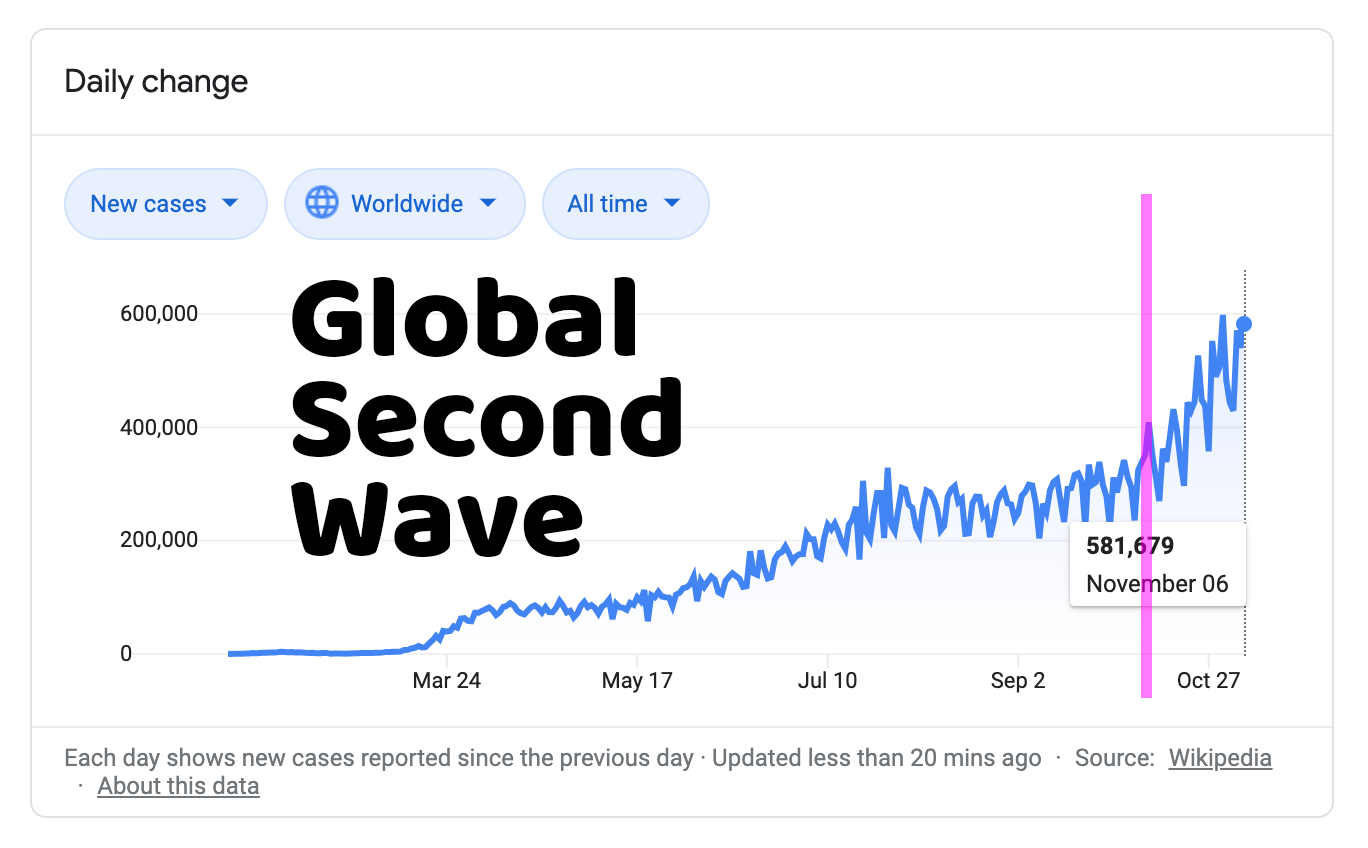
Due to mandatory restrictions, travel has been among the most immediately and visibly impacted of industries disrupted by the ongoing COVID-19 pandemic. For many people still practicing social distancing at home, the idea of getting into a commercial plane (filled with pressurized recycled air, and other random passengers) may sound ‘pie in the sky’ at this time. But travel will return - and how the travel industry changes is the big opportunity.
The current level of disruption across the travel industry overall, as indicated by the airlines sector, is enormous. According to a report from Insider, the TSA (Transportation Safety Administration of the United States) estimates U.S. air passenger volume is currently down 90% YoY. That kind of loss of revenue may sound dire, but the United States airline industry did receive $60B in dedicated financial assistance as part of the U.S. CARES (Coronavirus Aid, Relief, and Economic Security) Act.
Now, while many flights are indeed still being cancelled, most destinations are still being serviced, and air travel ticket prices are at record lows. Whether the prices remain low will depend on a number of industry factors - but one thing is certain: the airlines and travel industry that emerge post-COVID-19 will be different from the B.C. industry (“before COVID”).
Some pre-covid travel trends continue:
More and more, affluent consumers and especially Millennials love to travel. In many cases, people proclaim to live for it, quite literally - the general belief that experiences are more valuable than mere things is thoroughly ingrained into the hearts and minds of many - even those who would never self-identify as hippies, move into a minimalist tiny home, or Marie Kondo-away their hard-earned stuff. Material attachments don’t preclude the feeling that experiences in life are the more important thing. The burning desire to travel, to get out and see and experience the world in its full splendor, is something innately human, and not likely to be quashed by a lone virus.
In recent decades, digital tools have already helped open up the world to every travel-bug with an itch to get out and go - examples include downloadable maps to navigate streets of foreign cites using just cell phone GPS, smart phone translators that eliminate language barriers, and same-day hotel/hostel/BnB booking apps that ensure weary travelers will always find a place to rest.
In the long run, demand for travel from the consumer perspective will be more resilient than some may initially think. While most people will continue to guard their personal safety until governments get a better hold on the pandemic, as the quarantines do start to lift and travel restrictions loosen, many who have been cooped up will be ready for a truly epic getaway. According to experts at Travel & Leisure, a trade publication,
Air travel will restart slowly, domestically, and with social distancing.
Coronavirus Travel Disruptions:
So what does ongoing Social Distancing mean for the travel industry, over the next 12-24+ months? There are many uncertainties, but one thing we absolutely do know: big disruptions always lead to entrepreneurial opportunities.
Entrepreneurs in the travel sector are now moving fast, while the big airlines are caught on their heels. Founders are the ones who will create new service offerings that enable the wider travel industry to start moving again. These are all the new services the industry will need to provide, in order to guard the public’s physical health and mental wellbeing.
Travel Industry Opportunities & Predictions:
Digital Nomadism finally gets a job!
Twitter’s recent announcement that all employees can work from home forever is another step in the professionalizing of the digital nomad, moving away from just backpackers and bloggers. During the pandemic, surveys show that people are looking for travel periods to be extended, and having the opportunity to work from a variety of chosen regions. This movement is set to expand away from the traditional areas which are urban centric such as Lisbon, Mexico City, and Chang Mai to more rural or island communities which can provide more security and space in case of further global lockdown. Companies such as Remote Year have been successful in delivering digital nomad services. This sector may expand exponentially with increased startup activity on not only through services, but also working with corporates to develop tailored programs. These professional digital nomads or “domads” are attractive to rural areas or island communities, as they are a more sustainable addition to the traveller ecosystem, and there is potential for startups to provide the match-making, data, and services for these regions.
Travel Safety Apps
From our own research, a majority of travellers are actively planning their next trip, with more than two thirds seeking to travel in the coming year. Despite these numbers, there is a wider sense of insecurity of flying and uncertainty as to whether the region the traveller is flying to is going to be virus-free or virus-contained. Previously, travel safety apps have been used by corporates for employees travelling at risk areas. Increased direct to consumer activity is foreseeable, as the Covid-19 pandemic has shown that nowhere is immune from an outbreak, and arming themselves with information from apps can help passengers to feel more secure.
Passenger PPE
Even with social distancing implemented on flights, to make people feel safe, airlines will need to provide complete PPE (personal protective equipment) to all passengers who want it, including appropriate Masks, gloves, and small-size disposable sanitation and cleaning products for use on surfaces and items. Startups who can provide turnkey solutions will be well positioned to provide these PPE services to airlines and other travel industry key players.
Staycation Services
Staycations have been growing as the demand for sustainable travel has become increasingly important with younger travellers. The potential for further restrictions, travel quarantines, higher prices and less choice in air travel will see the demand for staycations increase. These staycations may be within an urban area or wider distances, through road trips for example. There is space for startups in providing planning, aggregation, and booking platforms.
Travel Bubbles
As countries emerge from the restrictions, several regions such as the Baltic countries, Australia and New Zealand, and potentially the UK, Ireland and France, will form special travel zones. These "Travel Bubbles" will, in the short term, change how people will take vacations. A different type of Travel Bubble will likely also develop in the formation of travel groups – individuals who know each other from family or friendship ties and feel safe travelling with each other. These groups will share the same accommodation and cabin space in aircraft, thereby minimizing contact with “strangers.” Although group travel is not a new concept, there is room for startups to develop platforms around planning, payments, and logistics.
Testing for Travelers
Many countries will likely require testing by law of international travelers, even as they begin to open up travel restrictions. But increasingly also (*at least until a preventative vaccine or prophylactic drug can stop coronavirus infections from progressing) passengers themselves may also demand testing routines become a standard part of travel, for their own safety. Startups who can integrate fast-turnaround COVID tests into existing airline offerings will find buyers eager to pay for accelerated testing before or after their scheduled travel, purely for the safety of mind that a negative test provides.
Experiential Travel Planning and Visualization
As travel may become more difficult or expensive, and with less disposable income to spend due to the economic situation, more planning is likely to go into vacation travel. This will lead to further expansion of the experiences sector, as travellers will seek to take most advantage possible to experience new things. Prior to Covid-19, a majority of travellers booked experiences after they arrived at a destination, but increasinly, travellers will now plan and book experiences long before embarking. Already there has been a deployment of locals shooting videos, to show the sights of their home cities for travellers looking for post-Covid travel inspiration. This development could give various struggling travel VR tech startups a lifeline for their products, even if only temporarily so.
Last mile mobility
Getting to and from airports has always been a challenge, but with growing distrust of crowded public transport, travellers will be looking for more personalized door-to-door transport that they consider safer and more hygienic. Although there are plenty of big players in this space, there is still room for innovative solutions or further disruptions.
Disinfecting Diode Surface Scrubbers
Many viruses are vulnerable to damage from ultraviolet light - but no matter where on the electromagnetic spectrum the virus-killing wavelengths measure, technological solutions are needed to quickly sterilize large or complex surfaces through exposure to high-powered light. Such solutions are likely to be needed not only to quickly and thoroughly clean aircraft cabins between flights, but to clean all kinds of surfaces in public spaces, public transit, and building frequented by the public, including regular businesses. Since exposure to such light spectra can also be harmful to humans, robotic navigation is likely to play a role in how such devices would work, to clean complex surface areas in public spaces autonomously. Nighttime robots that sterilize surfaces may a major future complement to human-powered janatorial, cleaning and sanitation services, and the travel sectors may be ripe go-to-market segments for such technological innovations.
Sustainability
Despite some of the major travel and aviation players putting sustainability on the back foot during the pandemic, sustainability will be a major factor in the future of travel, and a larger part of people's decision factors as the world emerges from this crisis. As European countries bailout airlines, some are being forced to push sustainability further up their agendas. Notably, Air France have been instructed to stop flying domestically when journeys can alternatively be completed in less than 3 hours by trains. Other airlines such as American, British and Delta Airlines have now permanently removed some of their least emission efficient aircraft. There is a real opportunity for startups with sustainability solutions which have the potential to increase efficiency, and therefore revenues, to breakthrough in the aviation industry. Equally, sustainability solutions across hospitality sectors are also very welcomed in the wider travel industry.
Many of these opportunities for building the future of the travel industry are already becoming quite clear – and in many cases, the required solutions are more operational than deeply technological in nature – exactly the kinds of services that scrappy entrepreneurs who spring into action can quickly hypothesize and test through classic lean startup methodologies.
During a global public health crisis unprecedented in modern times, the only real certainty is change: some elements or sectors of the travel industry will change permanently, and many other elements of the industry will change only temporarily, until stronger covid-19 treatments or preventative/prophylactics are developed.
Massive changes are always opportunities for hungry founders. In the early wake of coronavirus today, there are so many completely new problems in need of novel and systematic solutions, that the natural-born problem-solving entrepreneur is sure to among the first to build this post-Covid future.
Clyde Hutchinson, Founder of Viva Air Labs, a partner of the Founder Institute, was a guest contributor to this article. Clyde is committed to global innovation and entrepreneurship. Through Journey Partners, he leads several international innovation and startup programs in Aviation/Travel including Propeller Shannon partnering with Boeing, Datalex and IAA looking for disruptive startups in Aviation, Aerospace & Travel and as Founder of Viva Air Labs, Latin America first innovation hub for Aviation based in Medellín, Colombia. Having lived & worked in 5 continents he spent his early career as academic researcher working at University of Cambridge, Imperial College and Tokyo University.
.
Graduates of the Founder Institute are creating some of the world's fastest growing startups, having raised over 2BN in funding, and building products people love across over 200 cities worldwide. See the most recent news from our Grads at FI.co/news, or learn more about their stories at FI.co/journey.



